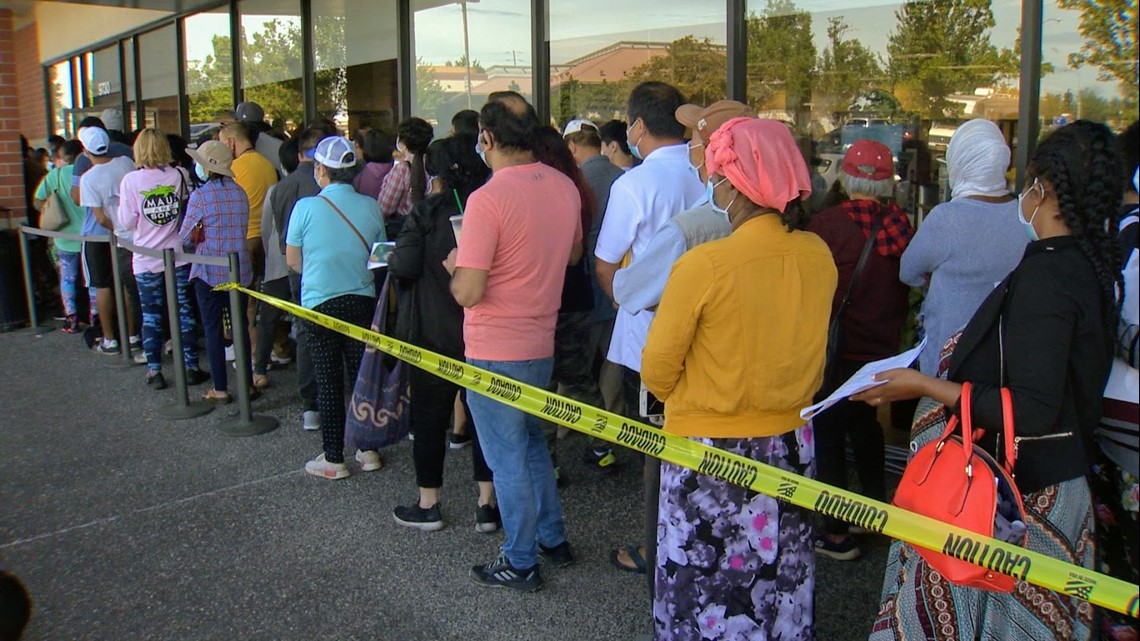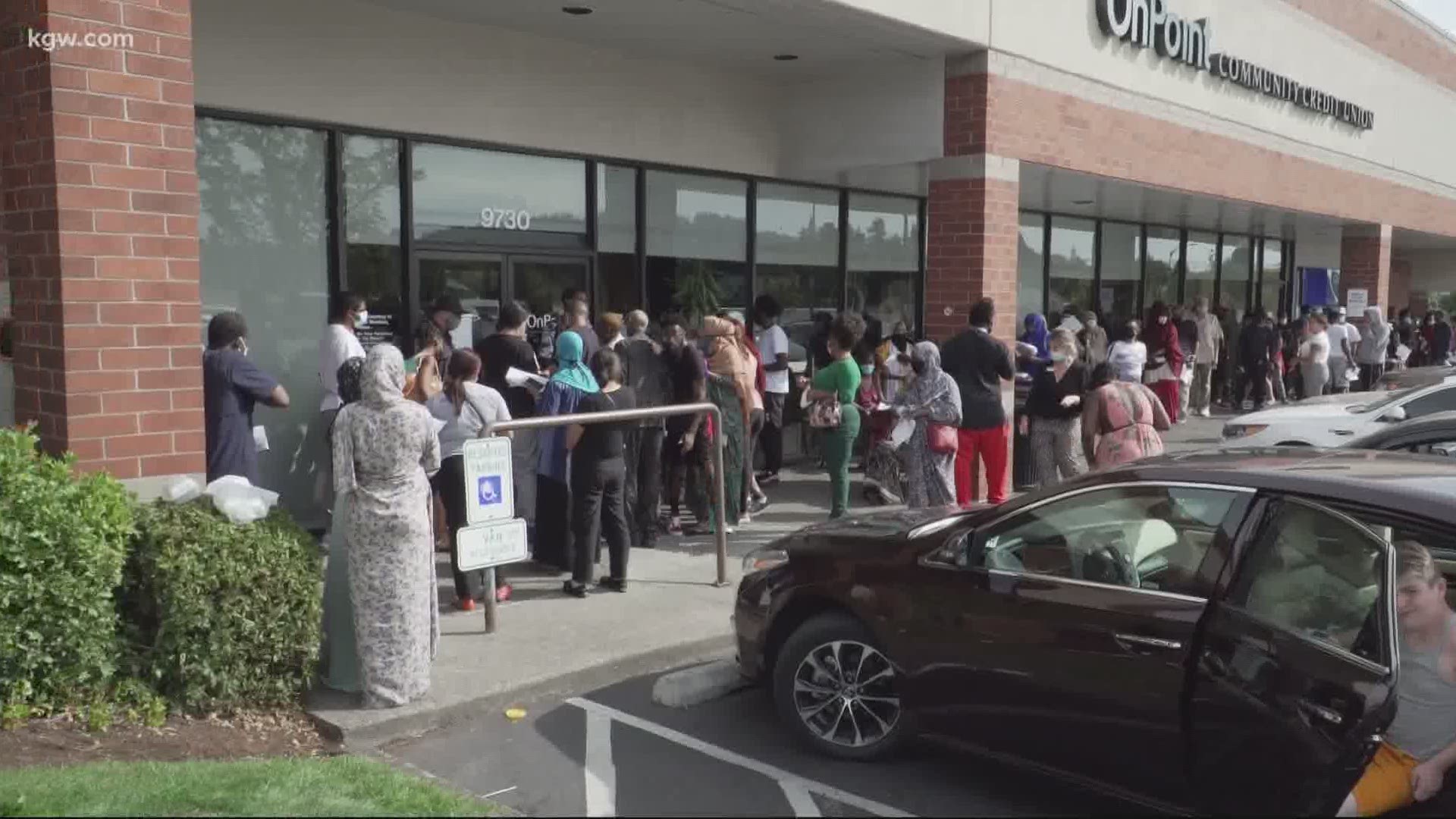PORTLAND, Ore. — UPDATE: State officials reported Friday morning that all 70,000 payments of the one-time $500 relief checks have been distributed or dedicated to Oregonians in need.
State officials said 62% of the checks handed out over the past two days were outside the Portland metro area.
The program will start winding down Friday. Participating banks and credit unions will be given a final funding allotment cap for the day and won't accept new walk-in applications once they've reached that cap.
"Previously scheduled appointments will continue through the end of the month, but new appointments will not be made," state officials said in a press release.
A spokesperson for OnPoint Community Credit Union said people should no longer visit OnPoint branches looking for the checks.
"The State of Oregon has informed us that its Emergency Checks program is closed, because all $35 million has been allocated," said Tory McVay, senior vice president and chief retail officer of OnPoint Community Credit Union. "Accordingly, we will no longer be accepting applications and individuals should not visit OnPoint branches seeking to access the state’s Emergency Checks program."
McVay said that if Congress and the state set aside more relief funds, they'll be ready to help again. He reminded Oregonians in need that they can find help with rent, utilities and food by calling the state's 2-1-1 hotline.
ORIGINAL STORY: Oregon launched its emergency checks program Wednesday and it created quite a stir, with thousands of people visiting eight participating credit unions and two banks to apply for the one-time $500 relief payments.
The state has set aside $35 million for Oregon residents who are facing financial hardship because of COVID-19 and aren't receiving state unemployment benefits they're owed.
State officials said that more than 33,000 payments, totaling more than $16 million, had been sent out in Oregon as of 3:30 p.m. Thursday. That's nearly half the amount of the $35 million set aside for these payments, gone in just two days.
Because some participating banks and credit unions won't be open on the weekends, there will be no checks handed out on Saturday or Sunday, according to state officials. See the schedule here


A spokesperson for the Northwest Credit Union Association said many people who applied have not met the eligibility criteria set forth by the state.
Here's a look at what people should know before they apply for the checks:
Program requirements
As a reminder, people are eligible for the program only if they meet all the following:
- Have earned $4,000 per month or less (pre-tax) prior to their income loss due to COVID-19
- Have not received all unemployment payments they are owed
- Be a current resident of Oregon and at least 18 years old
- Be able to prove their identity and that they are an in-state resident
- Attest they are experiencing severe financial hardship directly or indirectly because of Gov. Brown's Stay Home, Stay Lives executive orders
What to do before applying
Before making an appointment with one of the participating credit unions or banks, potential applicants should visit the state's emergency checks website to see if they qualify.
People can also call 2-1-1 to speak to a live operator, who can provide information about eligibility. If a person doesn't qualify for the $500 checks, the 2-1-1 team can offer other financial resources, like assistance with rent, utilities and groceries.
How to apply once eligibility is confirmed
Once a potential applicant has confirmed they are eligible for the $500 relief check, they should visit the website of the credit union or bank closest to them.
Before visiting the institution, fill out the application online ahead of time and learn whether they should make an appointment or go to the credit union or branch and wait in line.
The application to apply is available in English, Spanish, Chinese and Vietnamese. Find the application here
How to stay safe while waiting in line
People waiting in line for the relief checks should follow social distancing protocols, maintaining six feet of distance from others in line. Potential applicants should also wear face masks while they wait.
"We know that people are already hit hard financially by the pandemic, and we don't want them to also risk their health," said Jennifer Wager, executive vice president of the Northwest Credit Union Association.
Participating credit unions and banks
These are the eight credit unions and two banks that help distribute the funds:

